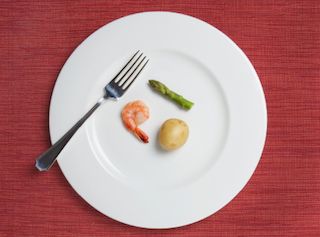Author: Art Spiegelman
Rotation #1
Connection Captain
Pages: 5 - 71
After reading the first chapters of the book, I came along with multiple connections.
The first connection happened on page 48, when the father tells his son about his battle in the warfare against the Nazis. At that page, the father asks himself "why he was shooting." Normally, when a person asks this question to himself, it is because they accept their defeat. Adding on, this idea is actually proven by the book, since some of the Jews were captured and defeated while in the war, because they accepted their defeat.
This idea of "accepting defeat" actually connects to real life. To prove this, the example would be the world cup in Brazil. When Brazil was losing by seven points against Germany, all the players were asking themselves "why they were playing," since all players thought that they were defeated, so they decided to play with their least effort. Furthermore, when the reporter interviewed Julio Cesar, the goalie from Brazil, he said that he preferred to lose 1-0 with the goal taken to be his fault, rather than losing 7-1 with the fault being from everyone, showing that all players gave up while in the middle of the game. If none of the players gave up while playing, the game would end differently because then all players would have a increased self esteem, which would make the results better than 7-1.
To wrap things up, the book connects to real life because of the idea of "accepting defeat."
<Giving Up Image>
A second connection I had while reading the book was on page 53. On that page, the father said that in the Nazi camp, they were fed crumbs of bread and soup. Furthermore, he also said that the Nazi soldiers got better meals than them. This is because the prisoners tend to get worse benefits than the soldiers since the army wants to show that a soldier is more rewarding/in a higher class than the prisoners.
This part of the book connects to the other book "A Day in the Life of Ivan Denisovich." The reason being is because the same happenings in "Maus" happens in the other book. The father in "Maus" said that they were fed bread crumbs and soup because they were prisoners, and this exact idea happens in "A Day in the Life of Ivan Denisovich." In that book, Ivan, the main character, is sent to a Gulag. Adding on, a Gulag is a special camp in Russia where prisoners work, and in the context of the book, Stalin was responsible for it.
Going back to the book being similar to "Maus," Ivan narrates how he experiences his life inside the Gulag, and one of the topics he always talks about is hunger. The reason being is because he keeps complaining that he gets one slice of bread and one to two soups of oatmeal each day, and for the prisoners, this is a very low amount. The reason that it is very little food to them is because the prisoners work hard every single day and receive a minimum amount of food to restore their energy, meaning that they use more energy rather than receiving more energy.
In conclusion, "Maus" connects to "A Day in the Life of Ivan Denisovich" because both books contain a passage that includes the main character's reaction to low amounts of food.
<Image of small amounts of food>
Overall, I had other connections to the book, but these were the two that stood out the most.


Daniel,
ReplyDeleteGreat post! I really enjoyed your thinking throughout this post. Now I do believe that the father accepted defeat, and I had not thought of it that way before. I haven't read The Day in the Life of Ivan Denisovich, but I can tell that it has a lot to do with being a prisonor, etc. Overall, I believe that your post reflected the book well, and you made some awesome connections.
I really enjoyed your post, but I disagree with you on the idea of giving up, because if they just gave up, the Germans would have won the war. I think the reason why they were not trying their best, was because they had no other option. They were not giving up, they were trying to live longer, because what I think is that if they fought back, they were going to die. So the strategy I thought they were using was being captured alive, get out of the camp somehow, go back and fight, that way the army would have not lost soldiers, the soldiers were trying to strategize. So in my opinion it would be not giving up, and yes give value to life, because they would survive longer and therefore if they want to fight again. Besides, if they had given up, I think that they would have just ran away, but they did not give up, because the soldiers worked hard to survive in that camp, and that way there will not be this idea of giving up, but still survive and have a better life, in the war no one was giving up, all were trying their best to stay alive, and if there was giving up, everybody would just kill themselves, and not have to suffer anymore, but if they are still alive, it means that they did not give up, it means that they are living because they feel something is important. it is that they value something, and that something is, their life.
ReplyDelete